Eat then shower, or shower then eat? Six essential steps for nailing your post-ride routine
Get your post-ride routine nailed with our tips and advice

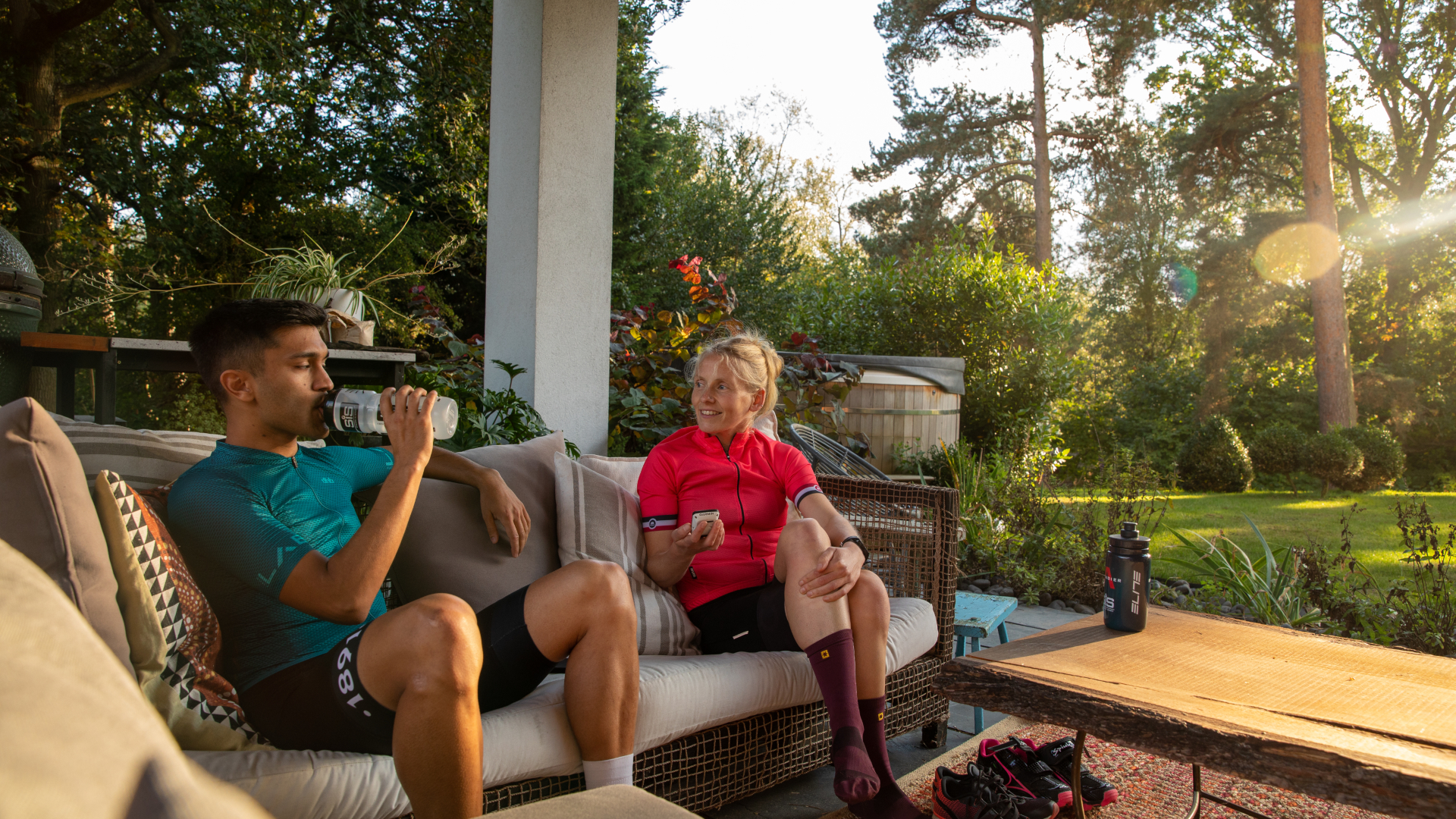
Some riders have a carefully-prepared routine of post-cycling recovery; others stumble about the house in a fog of sweaty exhaustion, unsure of their next move.
As you only reap the rewards of your training once you've fully recovered, we’ve put together some handy pointers to help steer you on the right path after every ride. This way you’ll get the most out of the ride you’ve just completed - and you’ll also be in a better place for your next spin.
1. Clean your bike
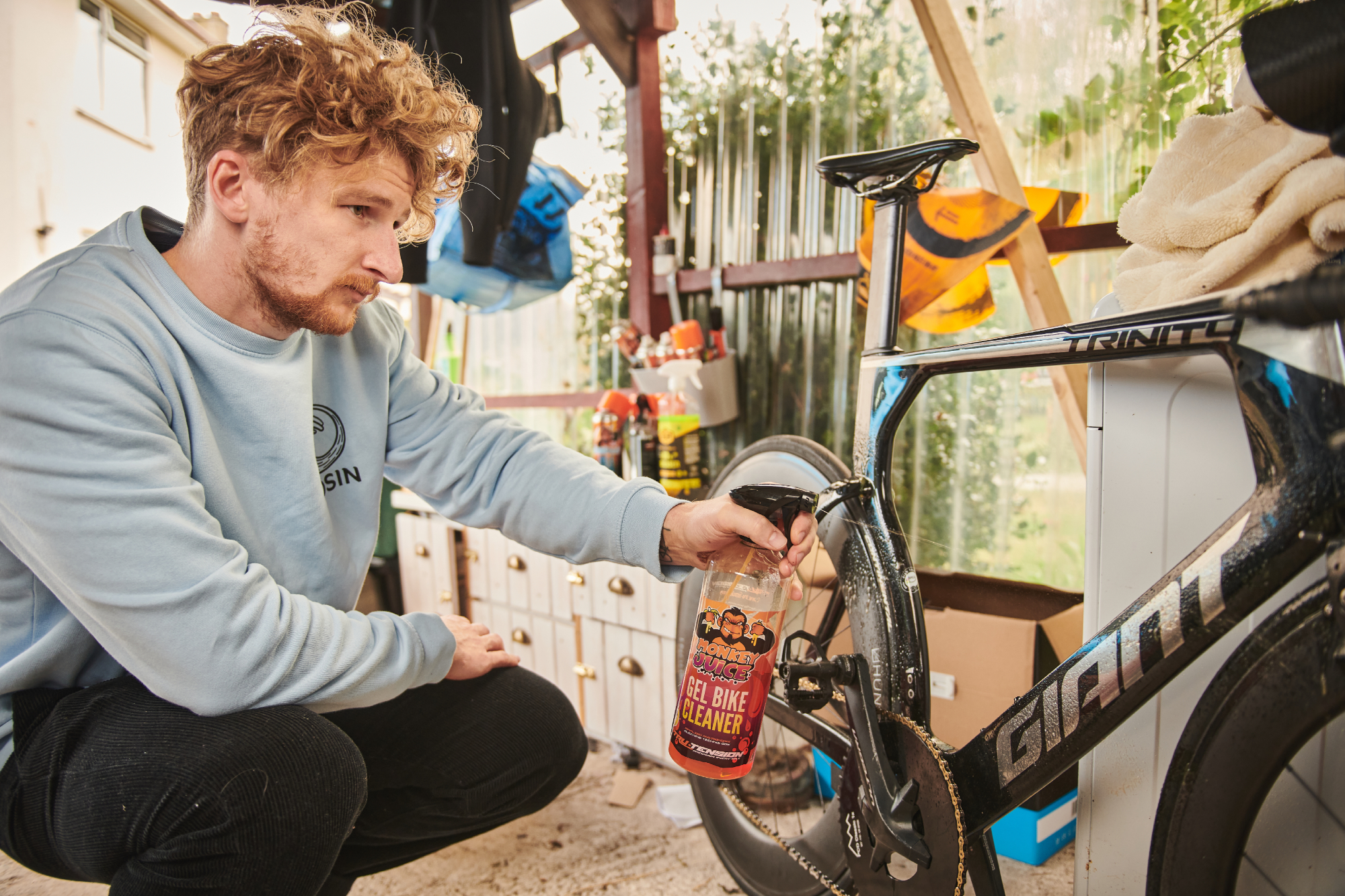
As cyclists, we do admittedly have a bit of reputation for (deeply) caring about our bikes. The cliche of checking if the bike is okay before considering yourself is somewhat grounded in reality after all.
But cleaning your bike after your ride really is important (though, of course, we would say that!) - and doing this as your first step generally is the best way to make sure this gets done.
Keeping things in perspective, it’s not a problem to grab a quick recovery shake. But sitting down for a full meal without having washed down your bike is a trap we’ve all fallen into at some point.
Once warm and contently full - maybe also having slipped into some cosy pyjamas, it’s all too difficult to wrest yourself off the sofa and back into the cold outdoors to scrub down your bike. The result is that your pride and joy is left in its sorry state, and the next time you come to ride it the drivetrain will be creaking in protest.
Much better to scrub it down first before stepping through the door - it only has to take 10 minutes at the most. It’s not a full service you have to perform by any means, just a basic clean. But doing that first, or at least only grabbing a recovery shake first, is the best way of making sure that happens. Over here you can find our step by step guide on how to clean your bike.
The latest race content, interviews, features, reviews and expert buying guides, direct to your inbox!
2. Eat a meal or drink a recovery shake
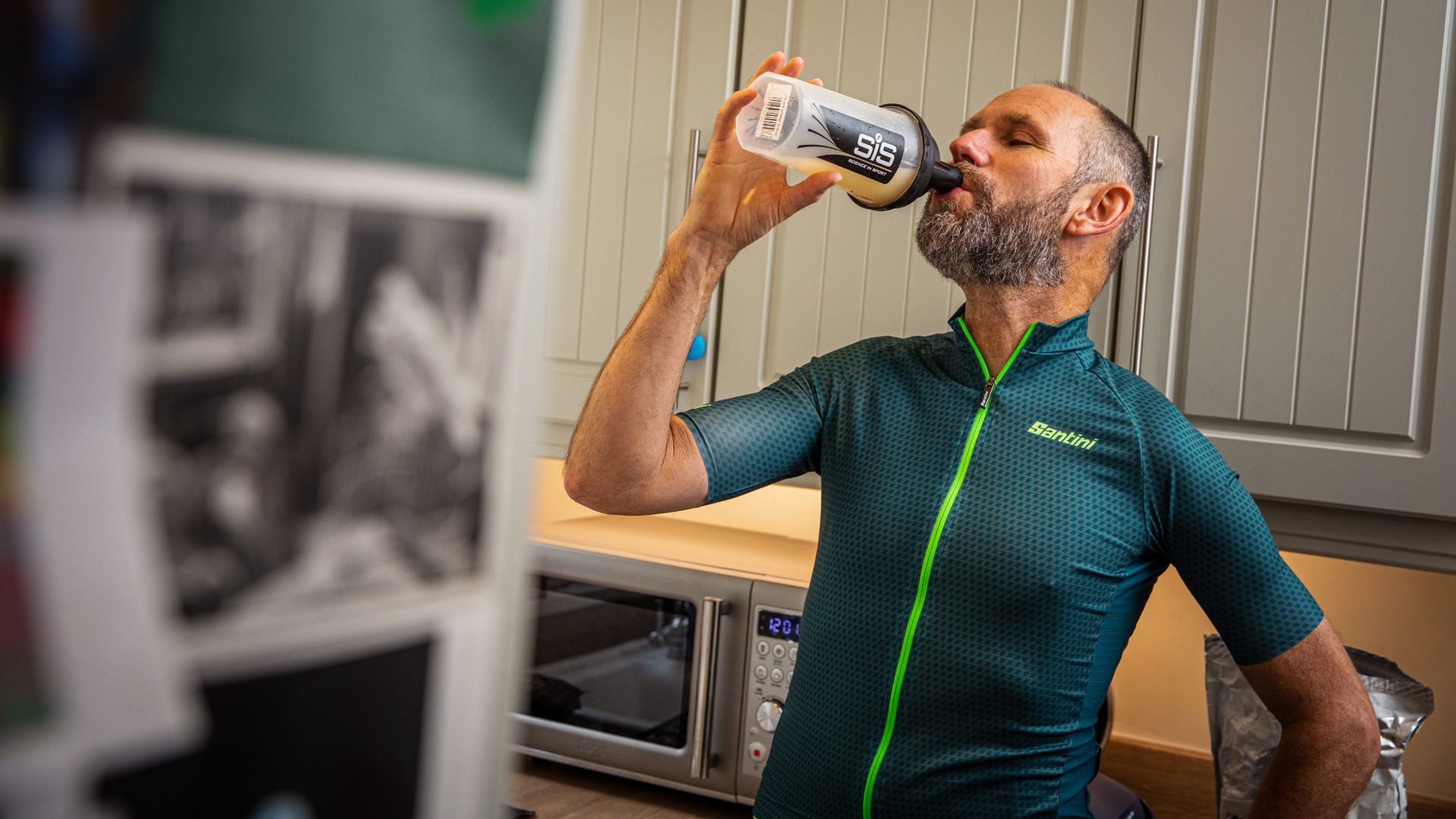
It might sound like stating the obvious, but it’s an easy one to overlook and end up sliding into a low-energy funk. On a ride of any duration - and especially on rides which include more intense efforts - you are going to be burning through your muscle glycogen stores, essentially, your body’s energy stores. It’s important to replenish these as part of your recovery, but also to ensure you're sufficiently fueled for the rest of the day.
Just how soon you consume carbohydrates after a bike ride does have a sizable impact on your recovery. “Many studies have shown that consuming carbs within an hour of competing exercise is most beneficial, as the insulin response post-exercise directs the carbs (broken down into glucose) to the muscles rather than being directed into fat stores,” cycling coach Andy Turner of ATP Performance Cycle Coaching notes.
Additionally, consuming enough protein after a bike ride is vital in itself for aiding recovery and for enabling those positive adaptations after you’ve trained. Turner explains: “When we exercise, we damage the muscles in different ways. This is the reason we experience delayed onset muscle soreness (DOMS). To help combat this, adequate protein consumption ensures that there are adequate amino acids present for muscle protein synthesis allowing damage to be repaired.”
Ideally, you want to be aiming for between 20-30 grams of protein, as more than that has been shown to be surplus to requirements.
If you’re time limited, post session meal prep can be more difficult. Whilst it’s advisable to get your macro (and micro) nutrients from your diet, the best recovery drinks can be an easy and effective solution if you have a hectic work-life or training schedule.
3. Take a shower
The two most important tasks are now done - cleaning the bike and fuelling yourself. Next in the hierarchy comes cleaning you.
By this point, you’ve been in your cycling shorts for a while now, and though the sweat-wicking properties of your base layer may have done a great job during the ride, now your damp clothes will be starting to stick to your skin.
It’s important not to spend too long in your cycling kit post ride, as the bacteria will start to build up and you can get some quite uncomfortable skin complaints from sitting in your kit too long. A warm and refreshing shower is just what you need - and the best way to start to relax after a long, hard ride.
4. Foam roller / stretch
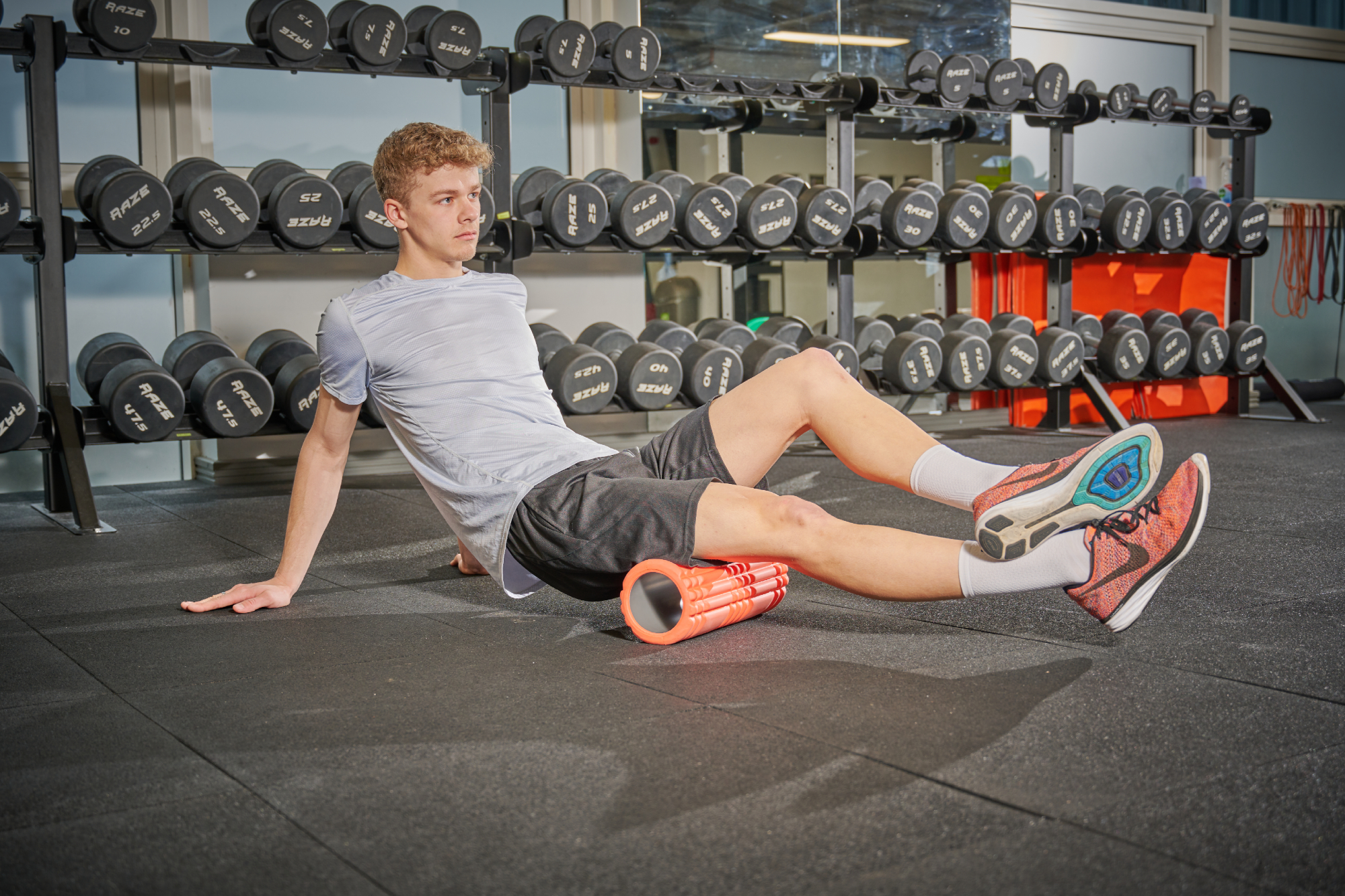
All that darting about, cleaning your bike, grabbing some food, jumping in the shower will have kept your muscles moving to some extent. Although likely you can already feel some joints starting to tighten.
Before getting on with the rest of your day - and especially if the rest of your day involves sitting down in some sort of chair, whether at a desk or in front of the telly - it’s important to stretch yourself out and flush out your muscles.
The sports industry is packed with products claiming to boost recovery, and we’ve previously looked into some of those assertions in our ranking of recovery aids for cycling - and there, amongst the better performers (not least for value), is the humble foam roller.
Rolling pressure along muscles using a foam roller helps to repair microtears in muscle fibres, breaks down scar tissue and removes fluid associated with hard exercise. It’s essentially a cheaper alternative to manual deep-tissue massage.
But you don’t even have to be as sports-specific as that - even a yoga routine will help to loosen you up to some extent after a ride. The main thing is to make sure you’ve stretched yourself out before sitting around.
5. Have a coffee
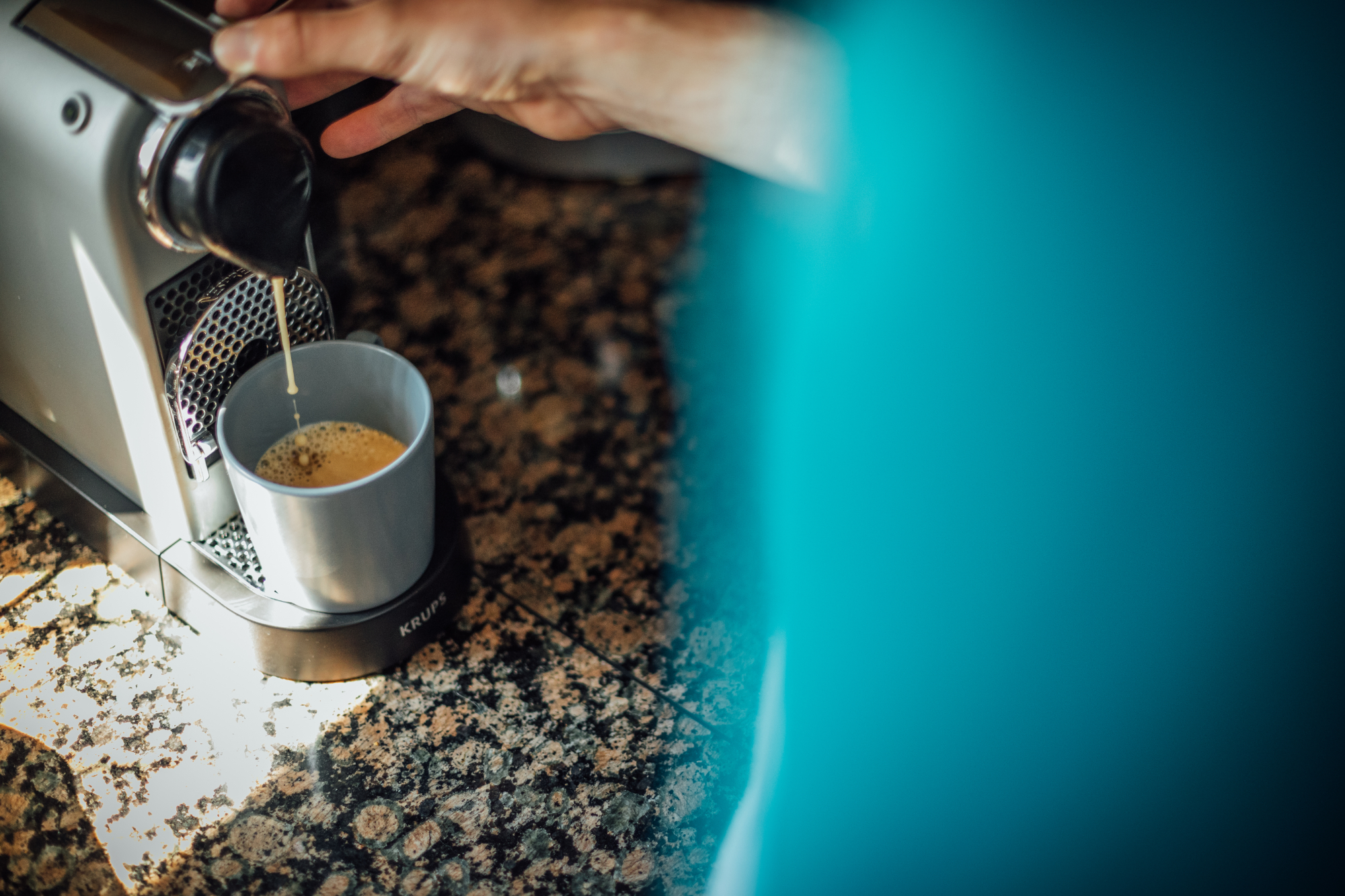
You may have stopped off during your ride for a coffee, but surely that's no reason not to have another one?
You’ve shown serious restraint holding back the urge up till this point, but now with all the necessary bike and body maintenance out of the way, it’s now time to sit back and bask in the warm glow of having smashed it out in your ride.
Anyway, knowing that you’ve hit all the most important post-ride necessities brings its own satisfaction - and that’s best enjoyed unwinding with a coffee (or other hot drink of your choice!)
6. Have a nap
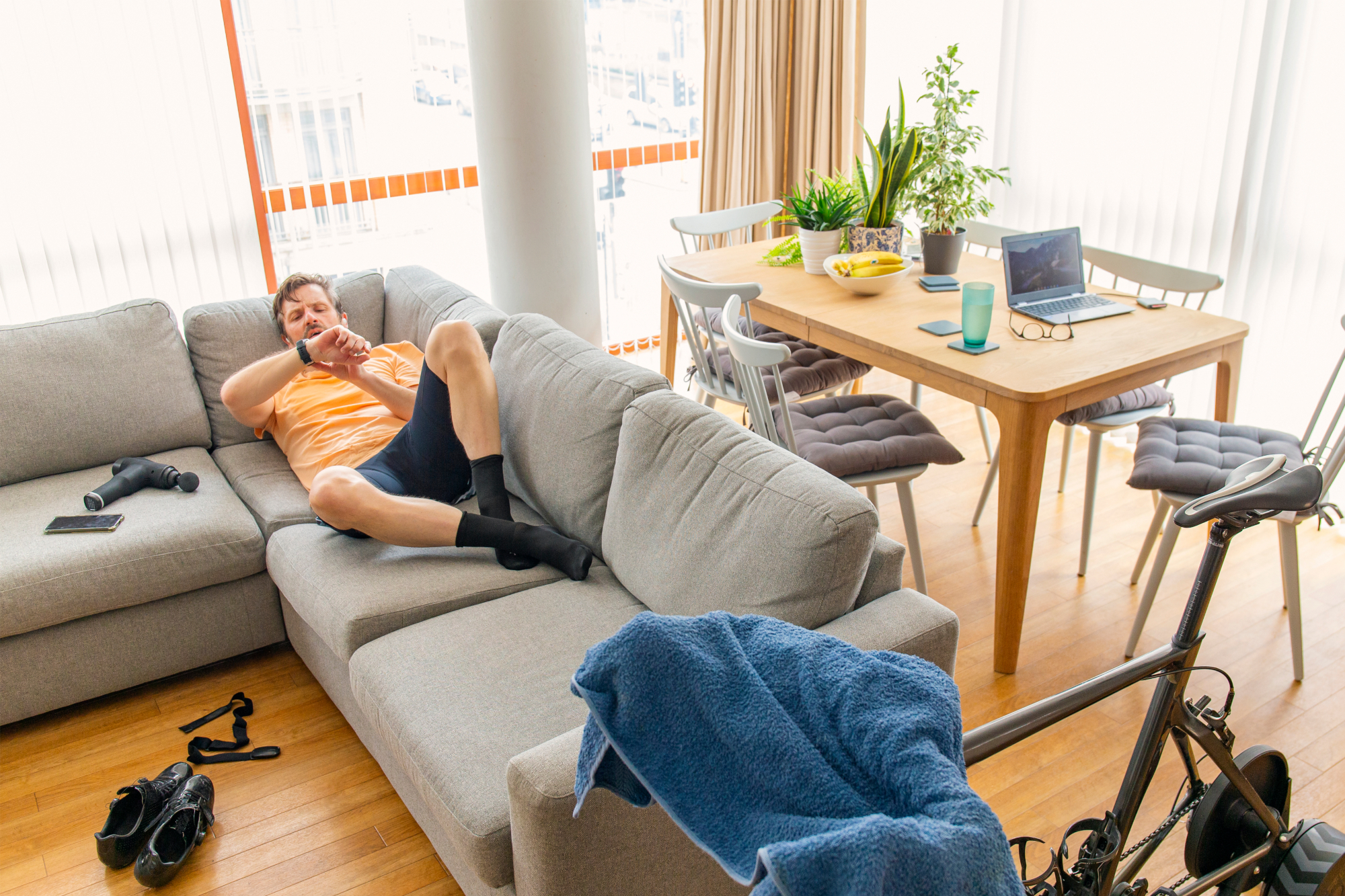
Now, this is no contradiction with having a coffee. It takes 20 minutes for the caffeine to kick in, so an espresso and a nap actually makes for an excellent combination! Anyway, as mentioned, recovery is just as important as exercise itself - and sleep is a vital part of the recovery process, it’s not just something to do at night.
According to Nick Littlehales, a sleep coach who has worked with British Cycling, recovery and sleep should not be viewed as separate concerns. With this, a cyclist who sleeps for only seven hours a night - generally regarded as the minimum for athletes - should supplement that shut-eye with a period of downtime during the day, ideally including a nap of between 20 and 30 minutes.
So there we have it, the six most important elements of any rider’s post ride routine. You can find out more about how to reach your full cycling potential checking out our advice on cycling training plans here. And over here you can find all the best cycling apps and platforms to geek out with in your post-ride analysis.
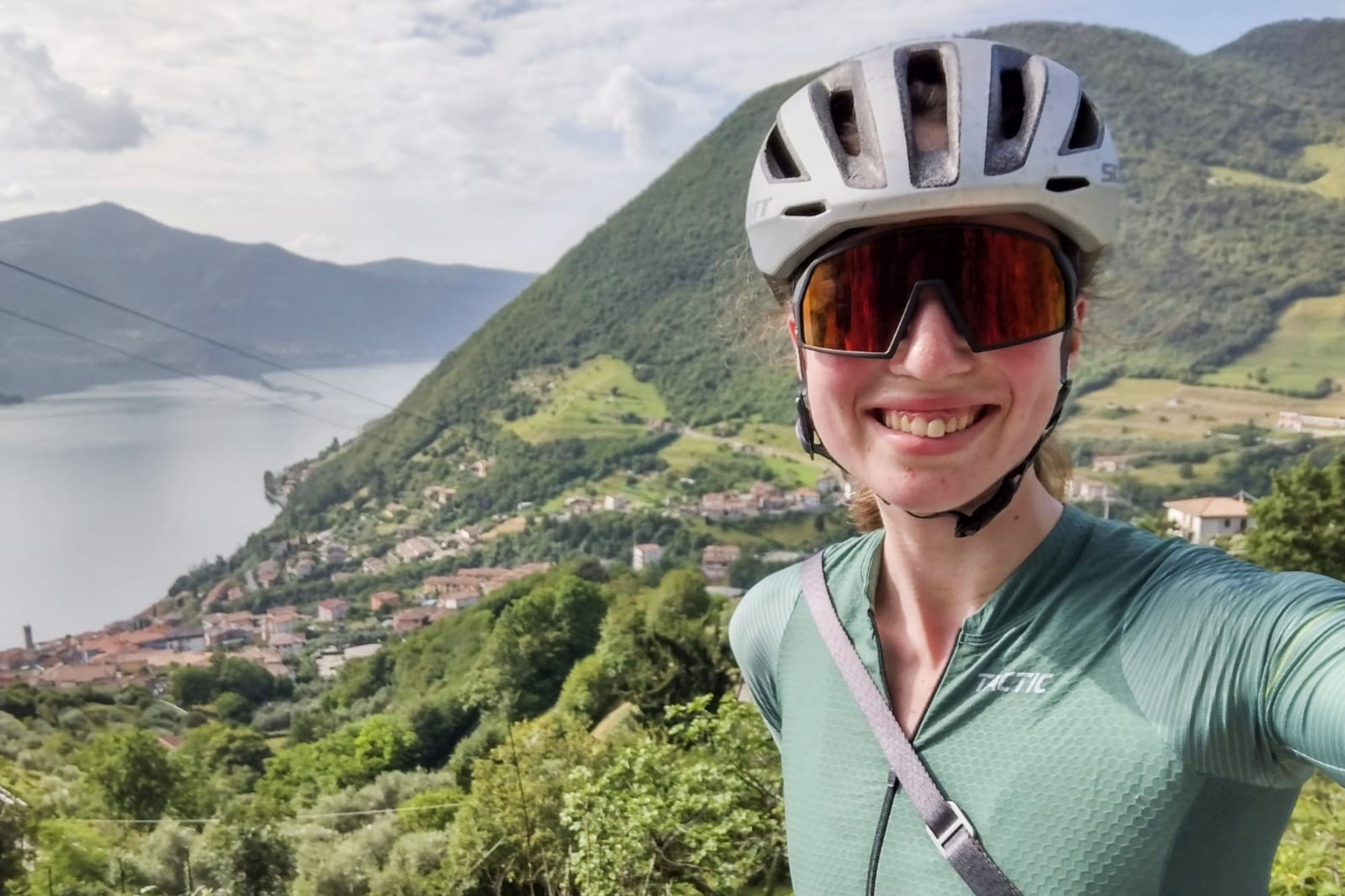
I’ve been hooked on bikes ever since the age of 12 and my first lap of the Hillingdon Cycle Circuit in the bright yellow kit of the Hillingdon Slipstreamers. For a time, my cycling life centred around racing road and track.
But that’s since broadened to include multiday two-wheeled, one-sleeping-bag adventures over whatever terrain I happen to meet - with a two-week bikepacking trip from Budapest into the mountains of Slovakia being just the latest.
I still enjoy lining up on a start line, though, racing the British Gravel Championships and finding myself on the podium at the enduro-style gravel event, Gritfest in 2022.
Height: 177cm
Weight: 60–63kg